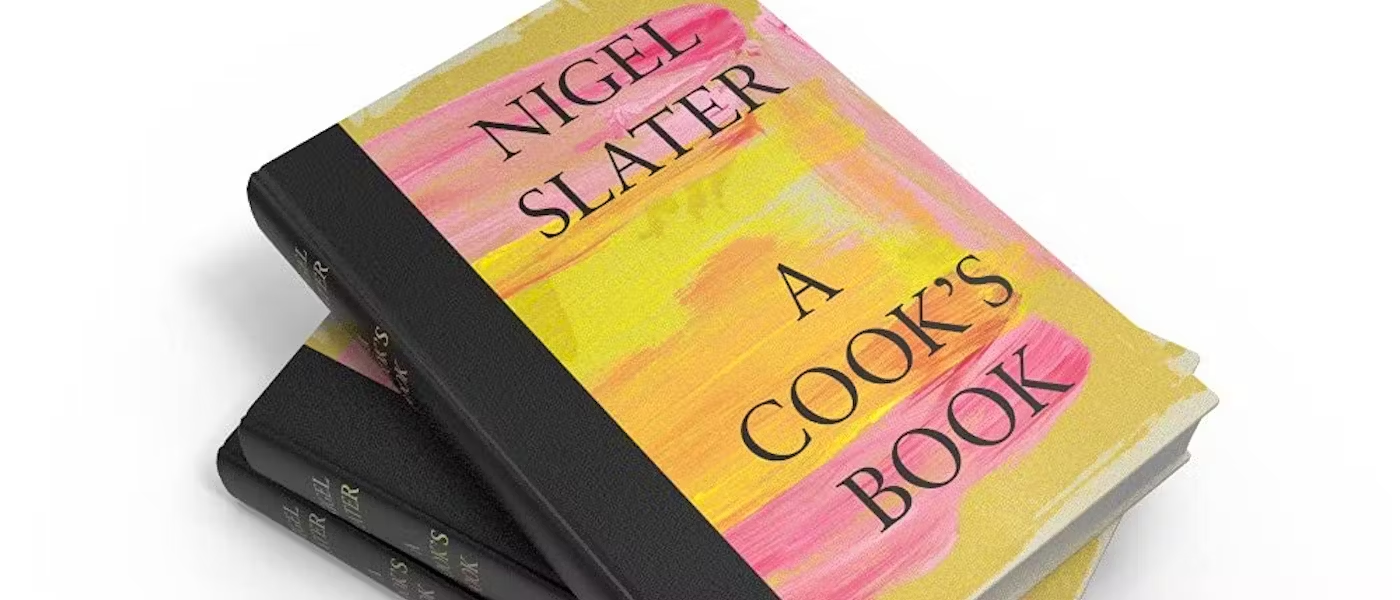How do we love thee, Nigel Slater? Let us count the ways.
We love you for your infectious enthusiasm for food, which taught many of us to cook.
We love you for the inimitably beautiful way you write about cooking.
We love you for doing everything – whether it is planning a menu, laying a table or planting a garden – with staggering style. He has oysters and champagne as a starter on Christmas Day, for crying out loud. Can there be anything chicer?
Appointed OBE in 2020 for services to cookery and literature, Nigel Slater is a national treasure – whether he likes it or not. He is feeding his hungry nation once again with his new tome, A Cook’s Book.
Slater fans have had ample opportunity to familiarise themselves with his vibe and recipes, through almost 30 years of Observer columns, several TV shows and the ten cookery books he has published.
Aficionados also know a lot about his childhood. His highly praised autobiography, Toast, was made into both a film and play. And what about when he brought us to tears on Desert Island Discs? (If you haven’t listened, you must immediately.)
So, you could argue that the contents of ‘the essential Nigel Slater’ – written at his kitchen table during the pandemic – are predictable.
There is the impeccable Jonathan Lovekin food photography that we know and love from previous works (as well as alluring interiors shot by Jenny Zarins).
There is the long, wholesome, elegant introduction that makes you head straight to the nearest farmer’s market, string bag in hand, to pick up a load of ripe figs.
There are recipes of such unctuous edibility that you want friends to pour into your kitchen immediately. Grilled scallops with basil butter, anyone? A tart of leeks and cheddar? How about a cup of tea and a browned butter, blackberry and hazelnut friand?
But there are also memories woven through this book that – perhaps because we feel so bruised post-Covid – truly warm the heart. Slater recalls the first recipe he ever came across, which was his late mother’s one for Christmas Cake, handwritten on Basildon Bond paper. He remembers cooking in a redundant fisherman’s loft in Cornwall soon after he left home. He describes sharing a tin of Campbell’s asparagus soup with his godmother – and laughing at the extravagance of it. He looks back at a childhood dotted with sponge cakes.
You just want him to go on and on remembering and using his memories to inspire his exquisite cookery.
Slater’s taste is impeccable. He sums up his aesthetic when he writes: ‘Why would I want to cook or even wash up with something made of plastic when it can have the gentle tones of wood or porcelain or clay?’
So, it should come as no surprise that the book’s front cover features an uplifting detail from a Howard Hodgkin painting. Inside the back cover is an arrestingly elegant photograph (of a pair of scissors, some pens and some spectacles). The result is that this book is – literally – brilliant from cover to cover.
In an interview in 2013, he said: ‘I cannot remember a time when I didn't have a book, a column or a television programme on the go. I have worked almost every week without a break since I left school at 16. I’m lucky and I’m grateful.’
We hope he keeps it up because the only problem with this book is the niggling fear that it may be his last.
By Becky Ladenburg
October 2021
Read More
9 Of Britain’s Loveliest Independent Bookshops
GWG Book Club: In The Garden – Essays On Nature And Growing
6 of The Best Online Farm Shops

This week, GWG Book Club devours the nourishing pages of Nigel Slater’s latest concoction.

By
Becky Ladenburg
·
Published October 2021
As The Guide's features editor, Becky has her discerning finger on the cultural pulse. She's also our go-to expert on the property market.
